Now in its second decade,Flickr Commons is an established repository of historical photographs from public archives around the world, with participating institutions adopting its “no known copyright restrictions” rights statement. But how many institutions provide functioning links to their own copyright policies?
The Commons on Flickr launched on 16 January 2008 with a pilot project utilising photographs from the Library of Congress, aiming to increase exposure to civic photographic collections and to facilitate the gathering of general knowledge about these collections (‘Many hands make light work’, George Oates, 2008).

The Flickr Commons Rights Statement
In Flickr Commons cultural institutions publish photographs from their collections that they believe are free of copyright under the Commons “no known copyright restrictions” Rights Statement:
Participating institutions may have various reasons for determining that “no known copyright restrictions” exist, such as:
1. The copyright is in the public domain because it has expired;
2. The copyright was injected into the public domain for other reasons, such as failure to adhere to required formalities or conditions;
3. The institution owns the copyright but is not interested in exercising control; or
4. The institution has legal rights sufficient to authorize others to use the work without restrictions.
On The Commons Usage page, each participating institution links (using the hyperlink labelled ‘Rights Statement’) to its copyright policy on its own website. Commons users are encouraged to review the explicit rights statement for each image: “If you make use of a photo from the Commons, you are reminded to conduct an independent analysis of applicable law before proceeding with a particular new use.”
For example, here is the copyright policy page that Finland’s Gallen-Kallela Museum links to from Flickr Commons:
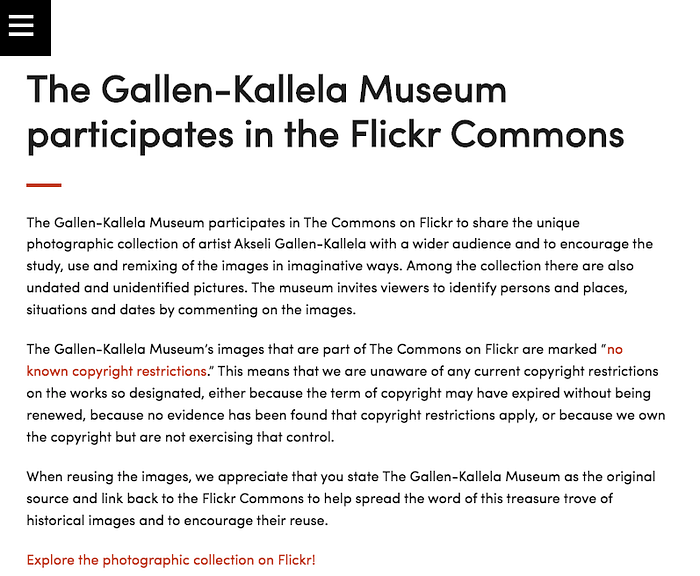
Institutions also have the option of linking to their copyright policies from individual photo pages (though not all do so). Here is an example from the New York Public Library:
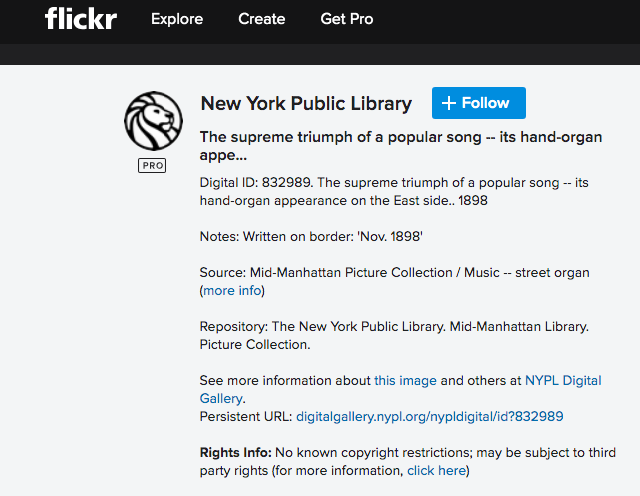
These linking options give every participating institution in Flickr Commons the opportunity to provide full details on its copyright policies. However, at the time of writing, many of these links no longer work: link rot is widespread.
HTTP 404
Here are two examples of broken outbound links in Flickr Commons:
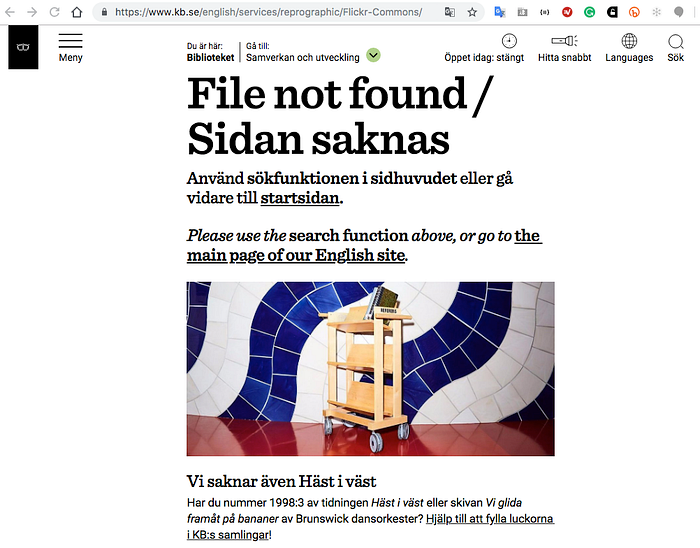
In the second example, the relevant information is available on the website of the Royal Australian Historical Society but the link from Flickr Commons has not been updated nor has URL redirection been implemented.

How widespread is link rot in Flickr Commons?
Desk research undertaken in March 2019 showed that just 58of the 115 participating institutions in Flickr Commons provide functioning links to their rights policies. Here are the details:
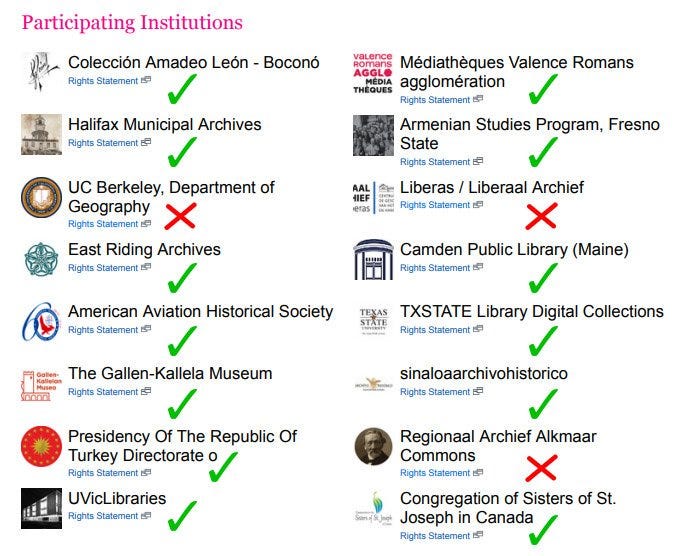


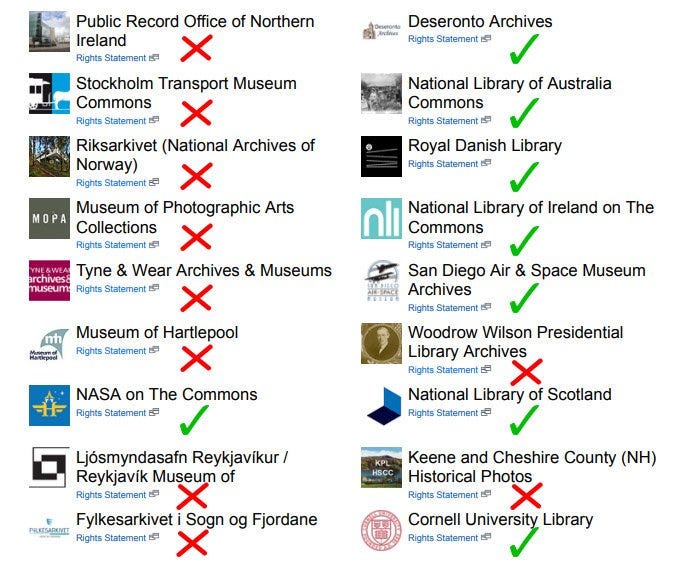


Conclusion
Frustrating for users and institutions, link rot in the field of digitised cultural heritage is a known issue (discussed re Europeana in this post by Marjolein de Vos). In the context of Flickr Commons, broken rights statement links obstruct the communication of important information about copyright. (Similar issues have been observed elsewhere during the Open GLAM survey.)
With the welcome news that Flickr’s new owner SmugMug has publicly backed The Commons, this seems an opportune moment for participating institutions to address the link rot issues highlighted in this post.